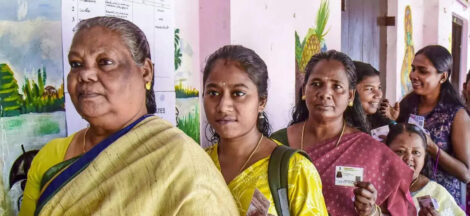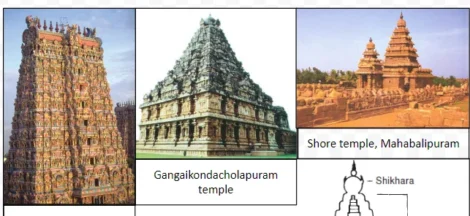By Sankar Ray
With a little more than a month to go for the three-day polling during 25- 27 July to elect 272 Members of National Assembly in the 342-seat national parliament, Pakistan’s ten years of uninterrupted freedom from military dictatorship palpitate. The electorate comprises 105.96 million, slightly more than 50 per cent of total population, estimated at 21 million. Ten MNAs will be from religious minorities and 60 are reserved for women while the rest is by proportional representation from parties getting more than 5 per cent of valid votes. Of the registered voters, 55.9 percent are males and 44.1 percent females. Alongside the National Assembly, elections are taking place for provincial legislatures of Punjab, Sind, Khyber Pakhtunkhwa and Balochistan as well.
Although it’s not judicious to predict the poll outcome, the general impression is that the Pakistan Muslim League (Nawaz) is set for re-election, although the party’s top boss Nawaz Sharif, removed from the prime ministership for dishonesty, is barred from contesting. The noise, generated by Pakistan Tehreek-i-Insaf, led by Imran Khan, with the promise to provide 10 million jobs within 100 days if voted to power at Islamabad, seems to be taken with a pinch of salt. Pak economists find it too hard to digest. Reaction from the PML(N) came through the interior minister Ahsan Iqbal, finance Minister Miftah Ismail and special adviser to PM for revenue Haroon Akhtar Khan at a press conference “The plan is plagued with internal contradictions .Pakistan will not be won by presentation; it will be won over by performance” . Iqbal ridiculed the PTI chief as a “NATO commander — No Action, Talk Only”.
Right to candidacy of Khan and former President Asif Ali Zardari too has been challenged in the court, although it might be in vain given that Zardari is accused of not having paid taxes for purchase of 1,500 acres of agricultural land in Sanghar. The allegation against the PTI chairman is his connection with the Sita White scandal. Former chief justice of Pakistan Iftikhar Muhammad Chaudhry has threatened Khan of filing a challenge questioning his eligibility to hold public office under Article 62 (1)(f) of the Constitution.
If the former cricket Test skipper were so confident of winning the poll battle at the centre, why is he contesting from five constituencies, Bannu, Islamabad-II, Mianwali, Lahore IX and Karachi East–II? However, the practice of contesting from more than one seat by big wigs is a feature of parliamentary democracy in a state plagued by externally-inspired (and financed) terrorism in the guise of religious purity. PML(N) leader Shahid Khaqan Abbasi has filed nomination from Lahore XII and Dera Gazi Khan IV while Pakistan’s People Party co-chairman Bilawal Bhutto Zardari is to contest from Malakand, Larkana-I and Karachi South I seats.
Khan is up against the National Database and Registration Authority alleging that it has been helping PML(N) by proving data to the latter in the election. PTI is about to move the Election Commission of Pakistan demanding that NADRA chief Usman Mobin be sacked. The NADRA spokesperson, reacting to the accusation in Geo News, told Radio Pakistan that the allegations are ‘fabricated and baseless’. He elaborated the point further that NADRA’s role in conduct of elections is very limited as it extends technical assistance only in accordance with law and constitution. It really acts as per the Pak Constitution. For instance, it unblocked national identity card (NIC) and passport of former military dictator General Pervez Musharraf under orders from the Supreme Court.
Celebrities of film and stage are in the fray. Among them are Kanwal Noman, former PML(N) MPA, renowned TV and film artist Sajid Hassan, who has a massive fan following locally and nationally, and singer-turned-philanthropist Abarul Haq, pitted by PTI against the acerbic interior minister and PML(N) leader Ahsan Iqbal.
Subalterns too have come forward albeit symbolically to take up the cudgels for ‘the wretched of the earth. To name one, Sunita Parmar Menghwar braves the feudal-electoral system in Sindh as the first woman to contest in the upcoming general elections in Tharparkar, the land of highly revered communist leader, the late Jam Saqi. “Thari women are even ready to fight the lion,” she told The Express Tribune after submitting her nomination papers as an independent candidate from the PS-56 constituency for the Sind provincial legislature. The 30-year-old civil rights functionary snapped fingers at PPP and others for their protracted neglect of burning issues “such as drinking water, health and education. I felt the urge to step up fight for our people.”
Syed Zeeshan Haider, CEO and chairman of Haider group of companies, who hosts a current affairs talk show on PTV News, endorses these issues. In an article, he mentions “water scarcity; the lack of sustainable development projects; an increasingly unemployed youth population; the lack of focus on human development projects; a continuous reduction in the foreign exchange reserves; the increase in non-developmental expenditures; the increase in public debt; the unequal distribution of wealth; the rising deprivation in Baluchistan, interior Sindh, and Southern Punjab; unpleasant relations in the region, especially with the eastern and western neighbours” as the key problems and has drawn attention to law-makers’ moral responsibility to implement the relevant Article 140 of the Constitution. The pity is that only 3.5 percent of the gross domestic product is spent on health and 2.8 percent goes to education. (IPA Service)
The post Pakistan’s Palpitating Pre-Poll Pyrexia appeared first on Newspack by India Press Agency.



